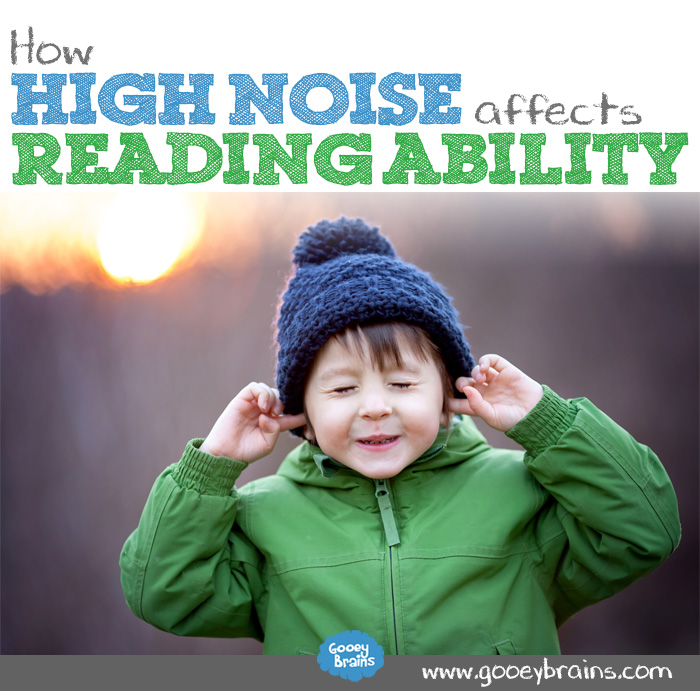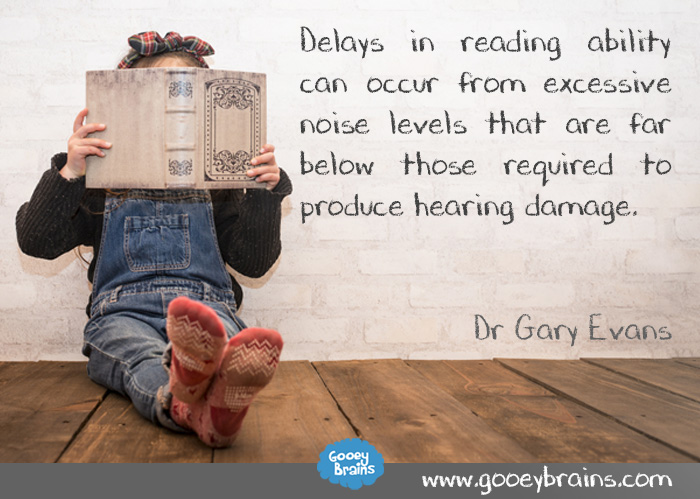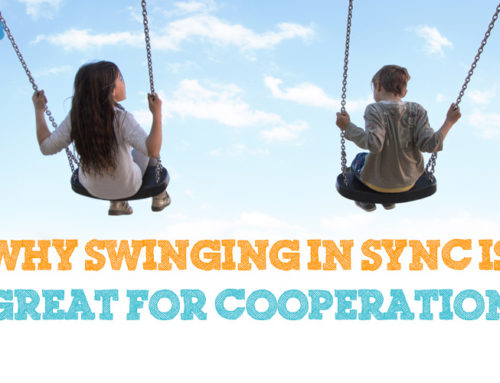We all know loud noise isn’t good for anyone, but it’s especially not good for our kids. What most people don’t know is that loud and excessive noise levels in a child’s environment will affect both their cognitive development and their reading abilities.
In fact, delays in reading ability can occur from excessive noise levels that are far below those required to produce hearing damage.
Researchers at Cornell University have found that excessive noise levels in a child’s environment will affect areas of their development and their reading ability. They have shown that continued exposure to excessive noise around the ages of 3-5 years is a critical period which has the potential to have a damaging impact on children.
So first up, what is considered excessive noise?
Excessive noise levels can be caused by a number of circumstances, with the most common causes in everyday life coming from:
- Living nearby to transportation like cars and airplanes
- Listening to and living in an environment with continued loud music.
High Traffic Noise
The research has shown that due to the high noise levels, there are delays in children when they are living in environments near heavy traffic. The most common causes are when children are living nearby to airports and on busy main roads. For example Evans found significant reading delays for children exposed to airport noise.
Loud Music
High music volumes have also shown to be a concern. Children can be exposed to high music levels from a number of sources around the house. The most common examples include exposure to loud TV’s, computers, phones, stereos, headphones and portable music players.
The Impact of Excessive Noise on Kids
The brain is very adaptive, and what you find is that children living in an environment with high noise levels will develop their own coping strategies custom to that environment. What the studies have shown is that to cope, children in these high noise environments will adapt by disregarding and tuning out speech. This is a problem and can have a significant effect as by tuning out speech the child is limiting their own development. This restriction has shown to results in delays in both their reading levels and speech perception.
Cognitive Development Can Also be Indirectly Impacted by Noise
Noise levels in a child’s learning environment are also shown to indirectly affect their development. Whether they are learning at home or in a classroom, the interaction between teachers and adults in noisy schools is shown to impact on cognitive development. Teachers in noisy schools are shown to be more fatigued, less patient, and have classes which get affected by surrounding noise levels. All of these factors combine and play an indirect role in a child’s development.
The Health Impacts of a High Noise Environment
There are also a number of health related issues that can arise from exposure to chronic loud noise. For example Evans reported that “children exposed to chronic loud noise also experience a rise in blood pressure and stress hormones. And children as young as four are less motivated to perform on challenging language and pre-reading tasks under conditions of exposure to chronic noise.”
If you find that your children are in an environment filled with excessive noise, there are a number of things you can do:
- Keep a close check on the volume of the technology they use, make sure that music devices, computers, TV’s and other devices are kept as low as possible.
- As children can tune out in a noisy environment, pay attention to check that they are listening to your speech. If not, when learning to read take them out to a quiet environment.
- If budget permits, modify their environment. This could be giving them the room in the house away from the busy road. Another option is the addition of noise attenuation devices for their room.
Adapted from “The Effects of the Physical Environment on Children’s Development” written by Kimberly Kopko and based on the research of Dr Gary Evans.







